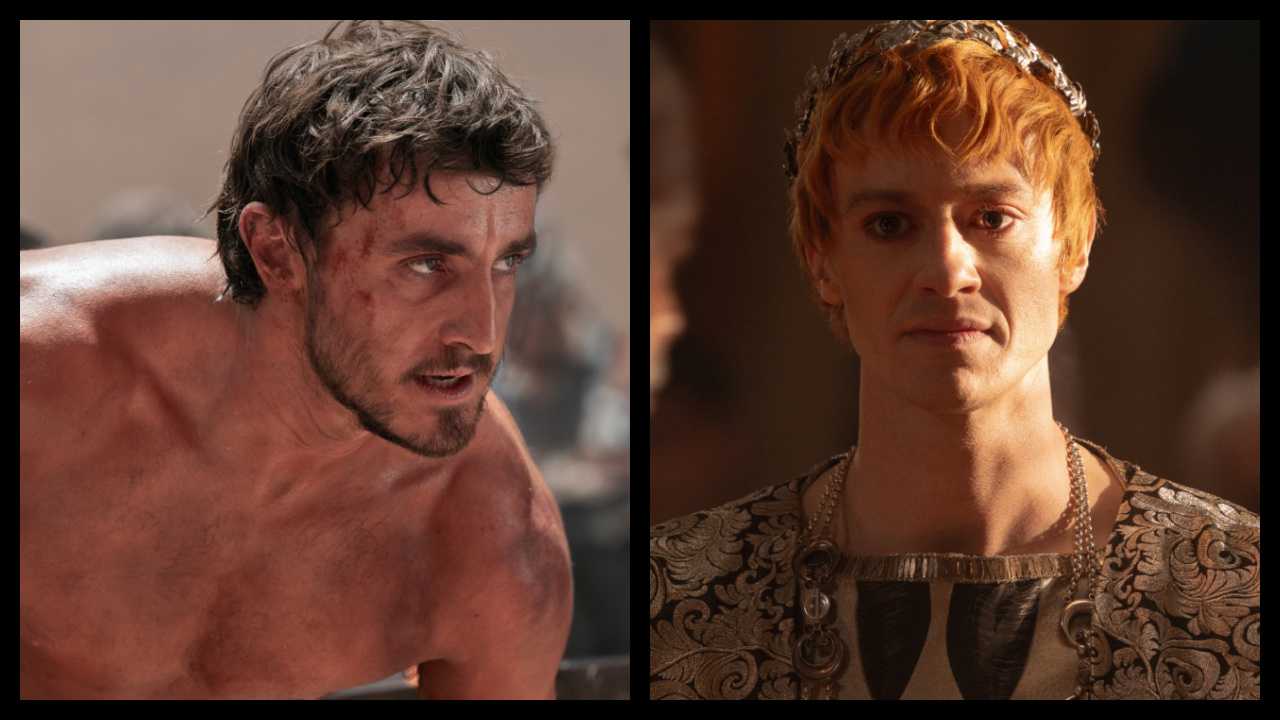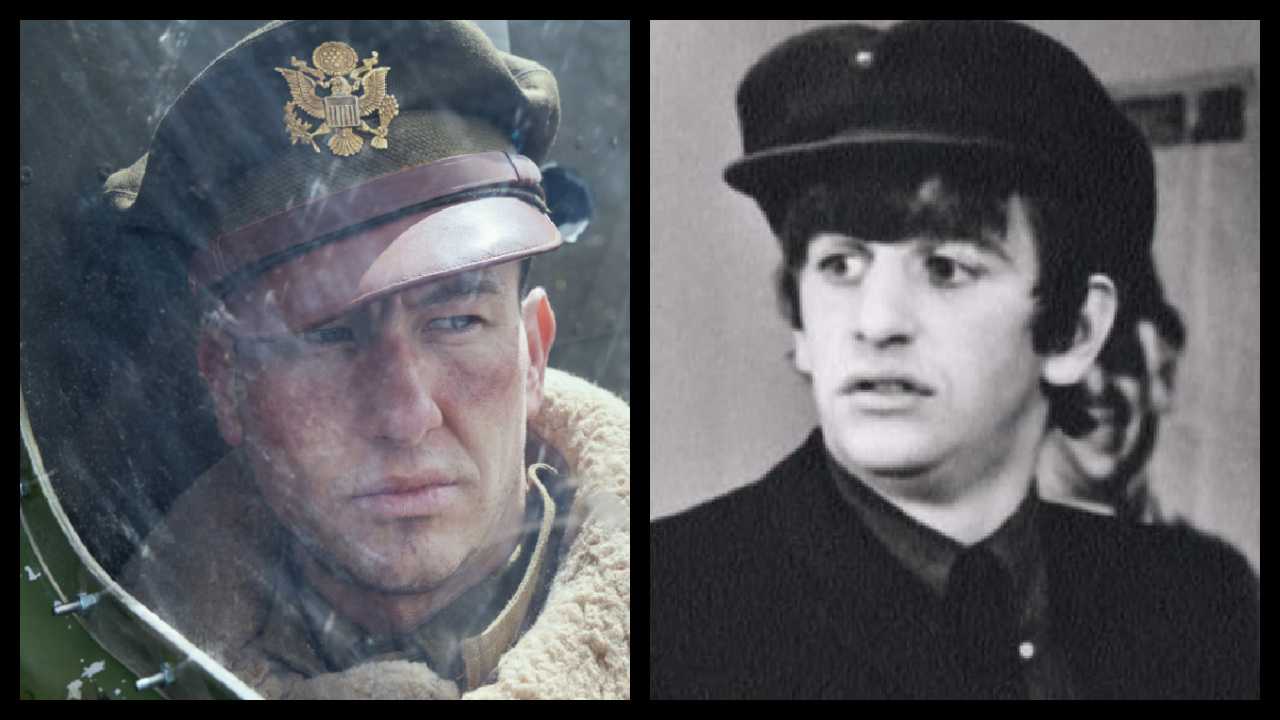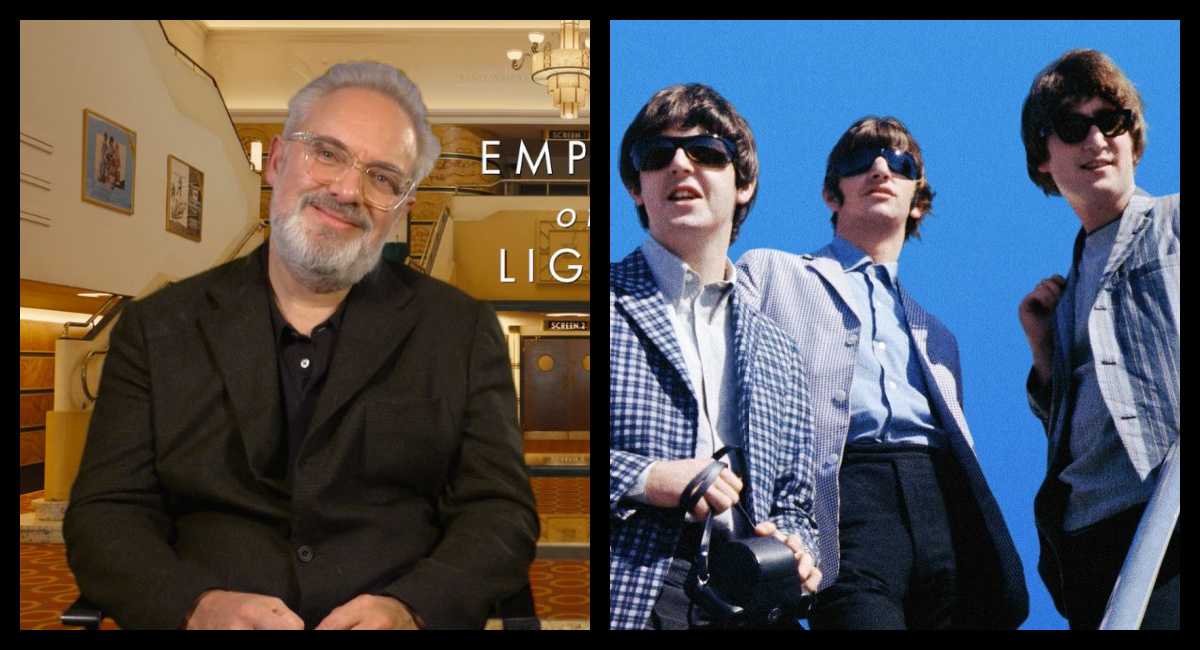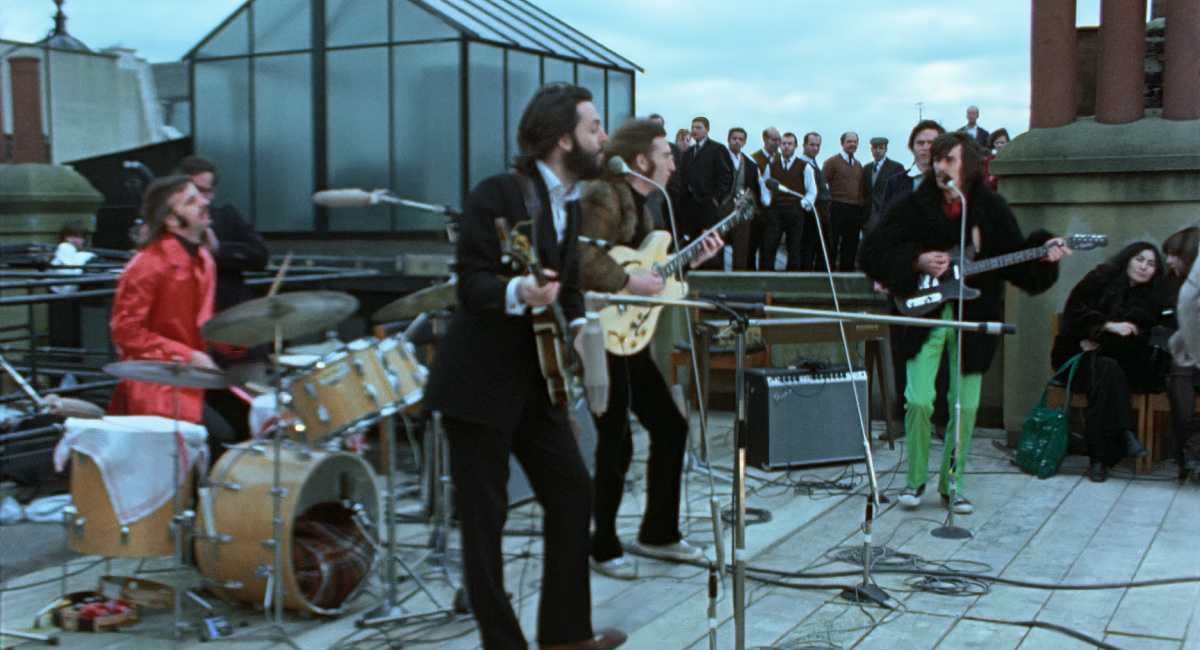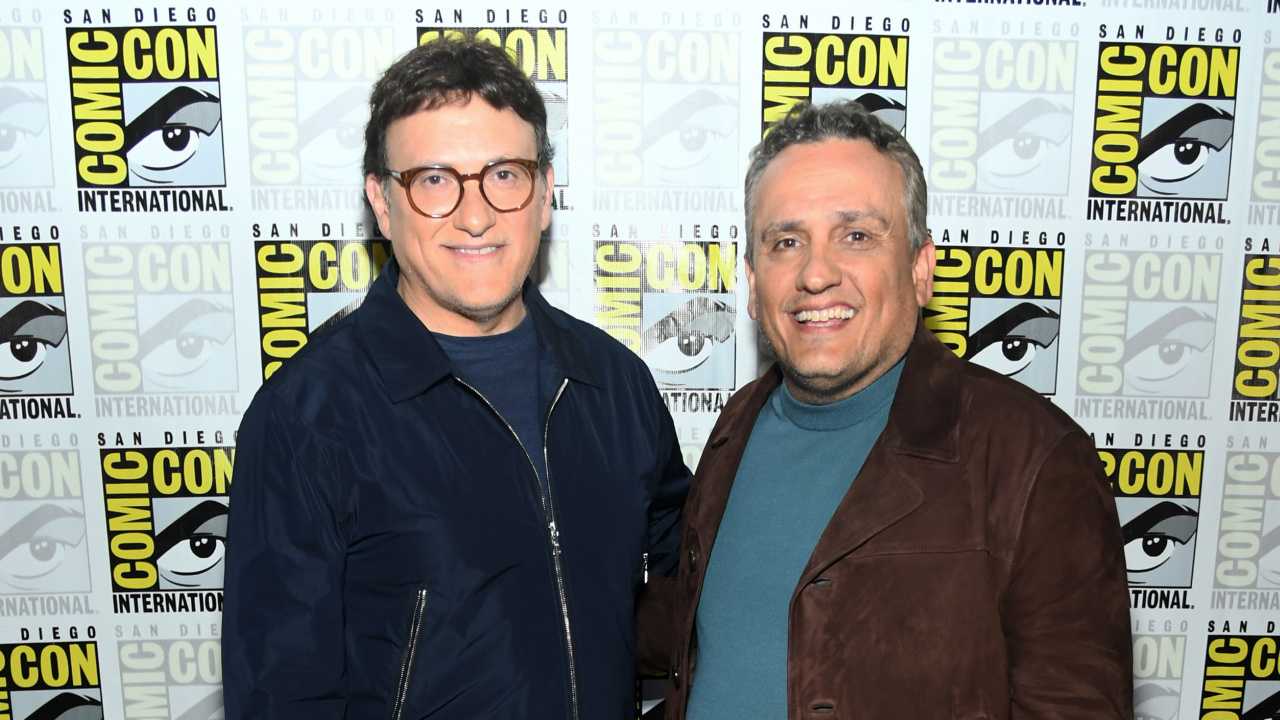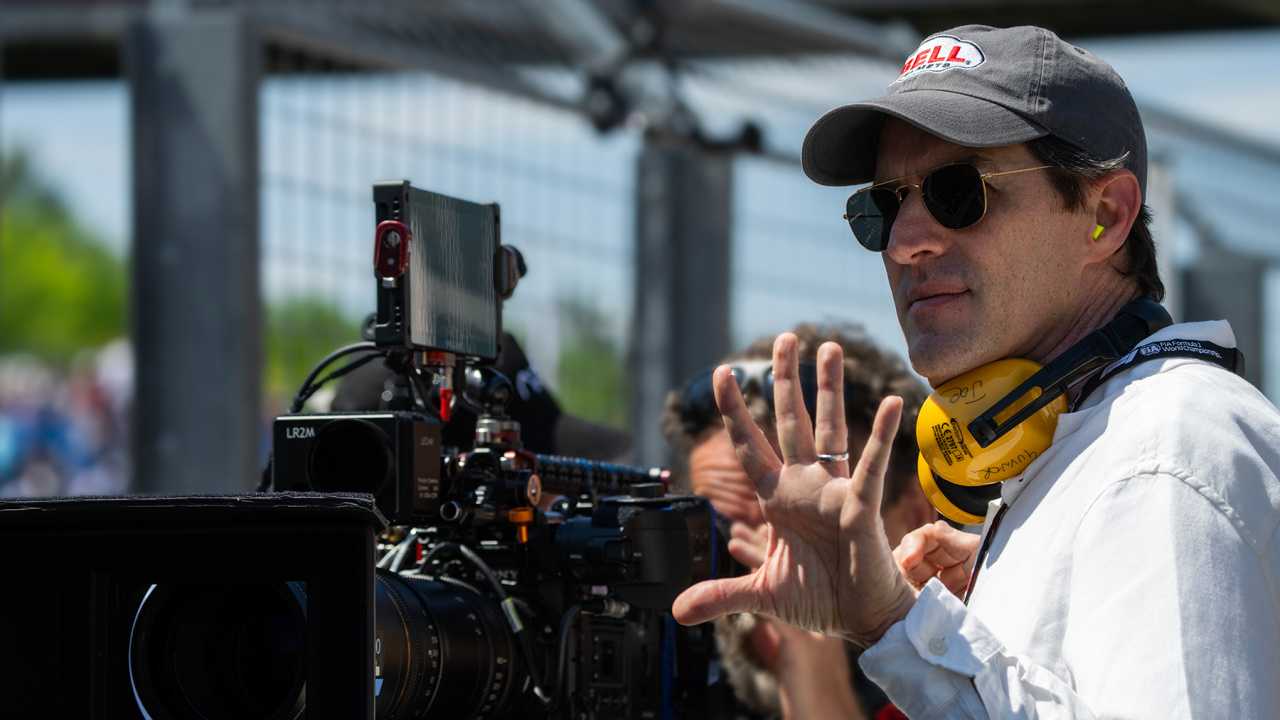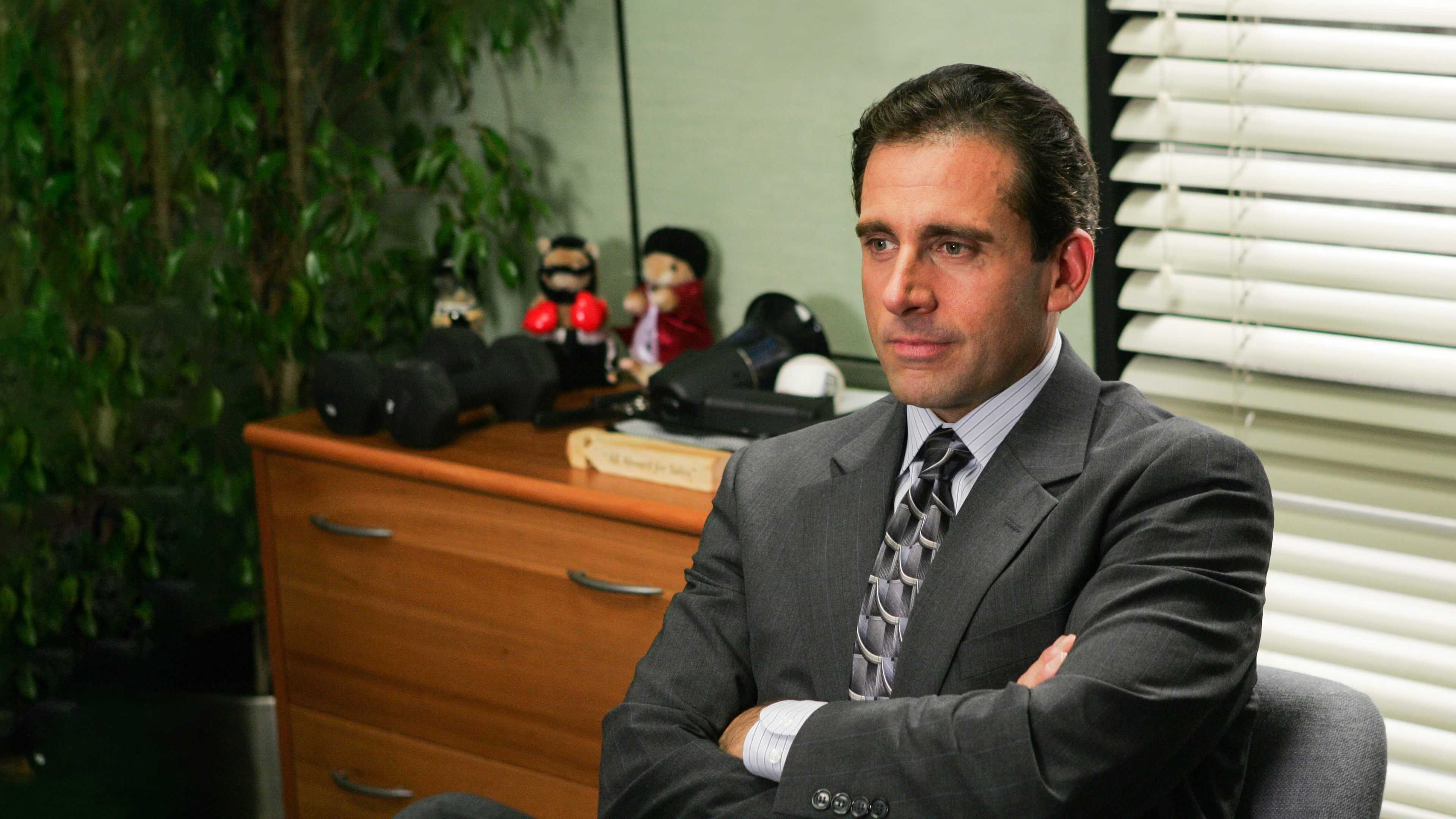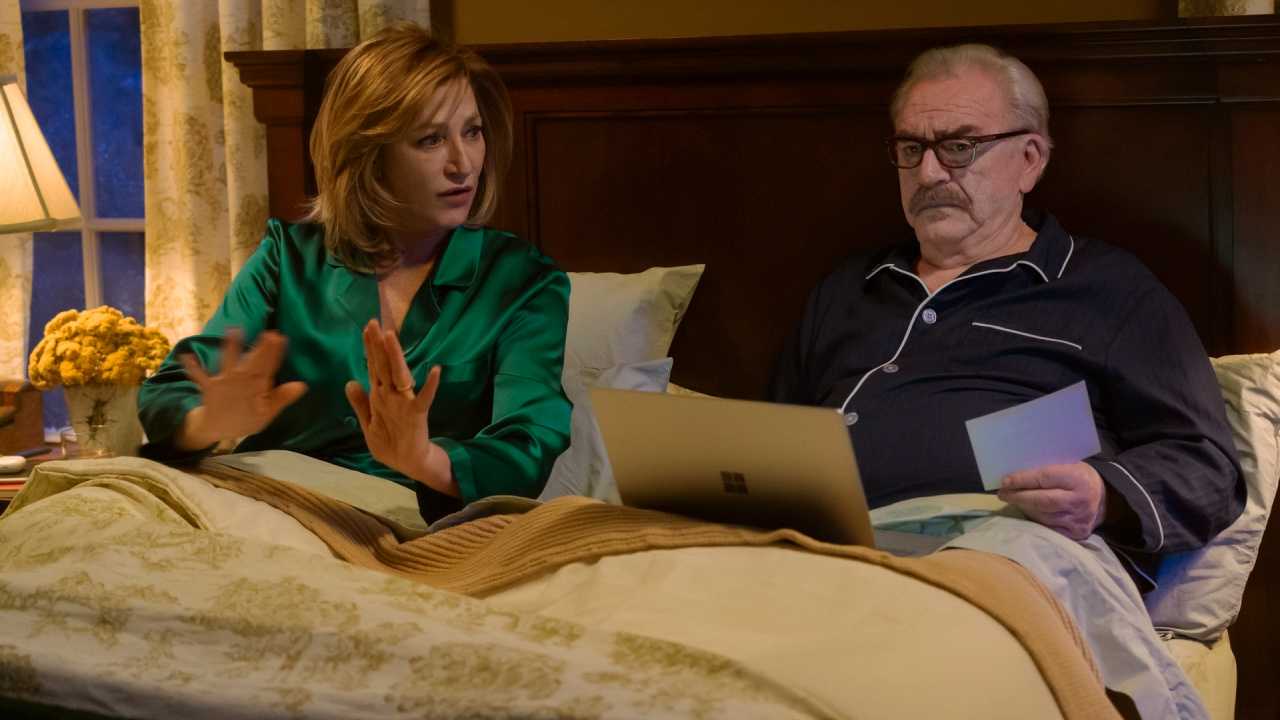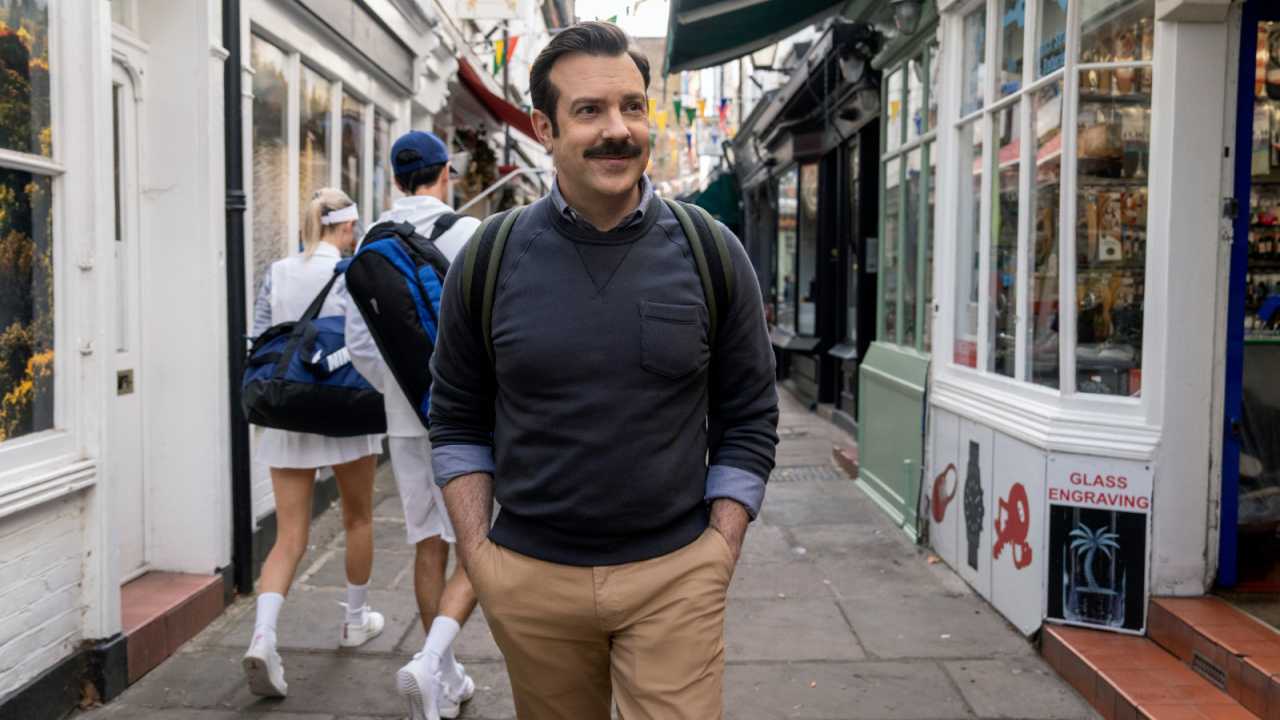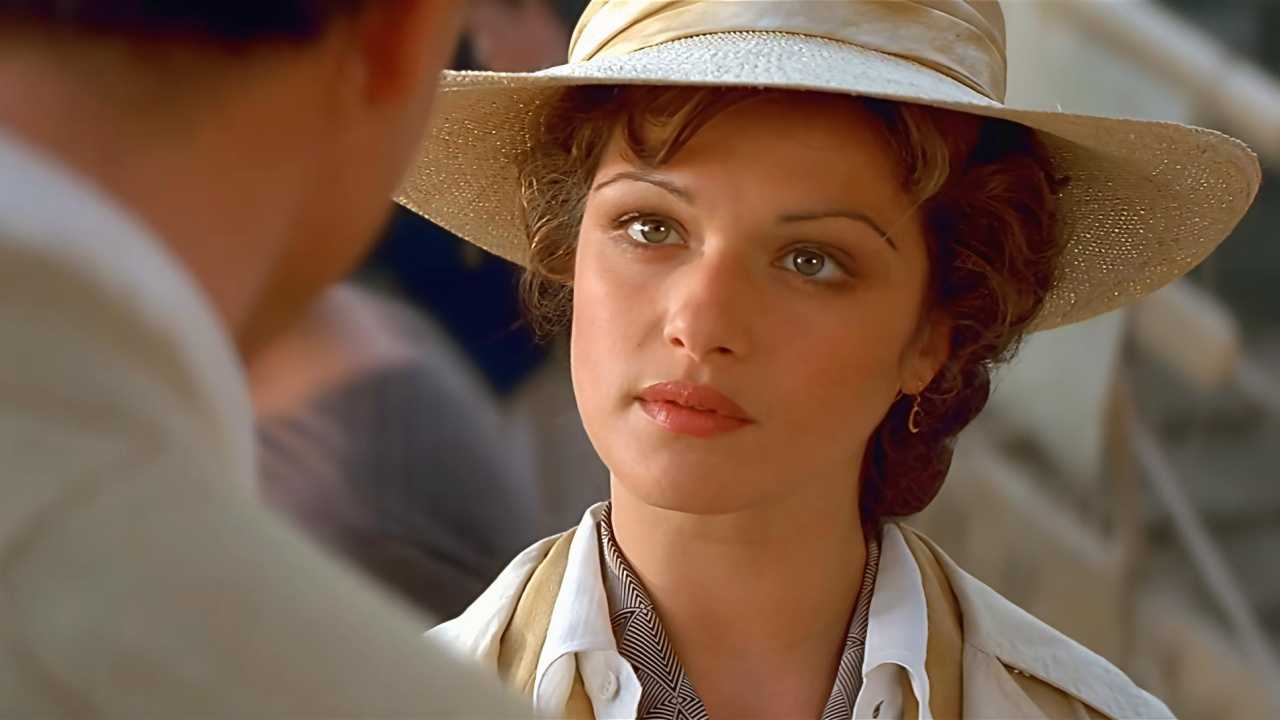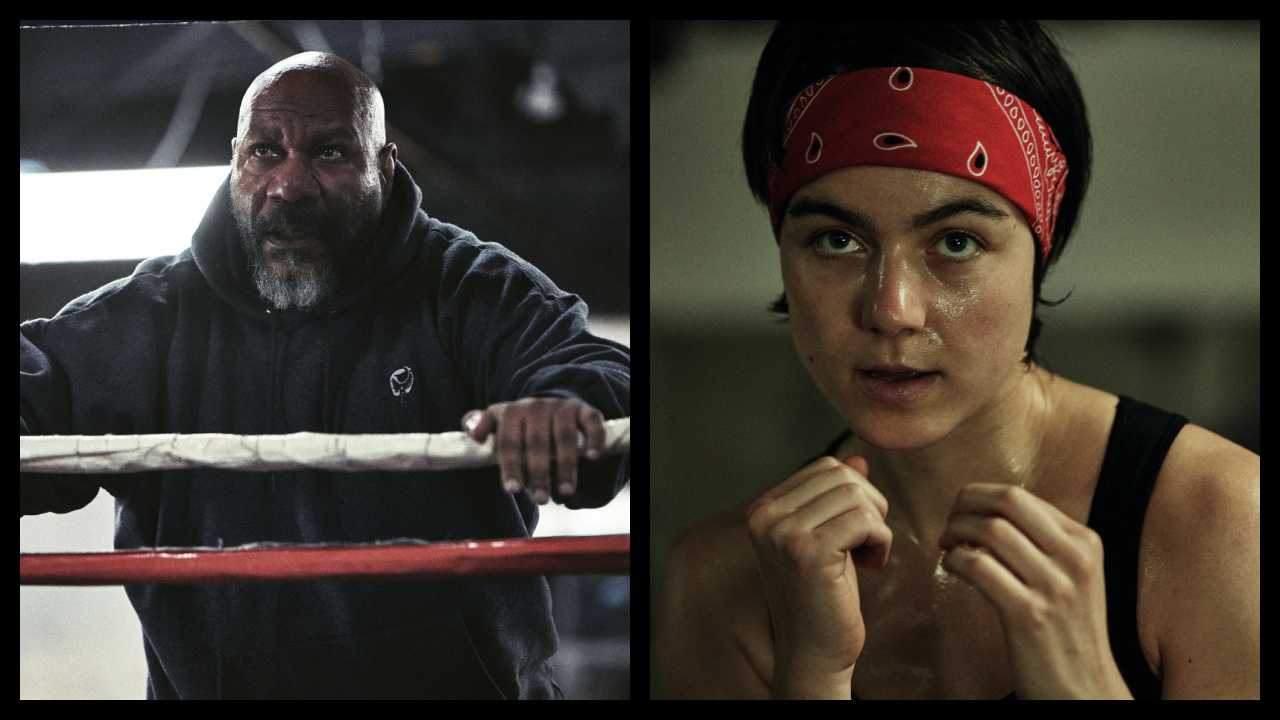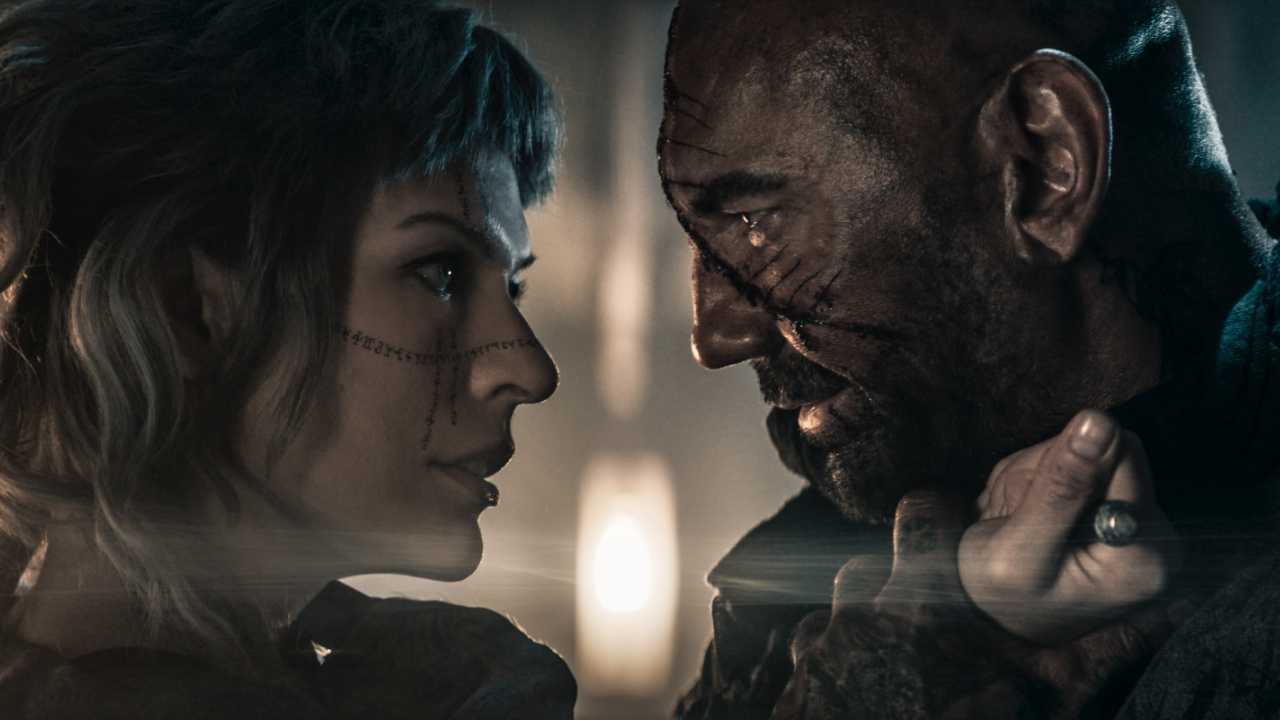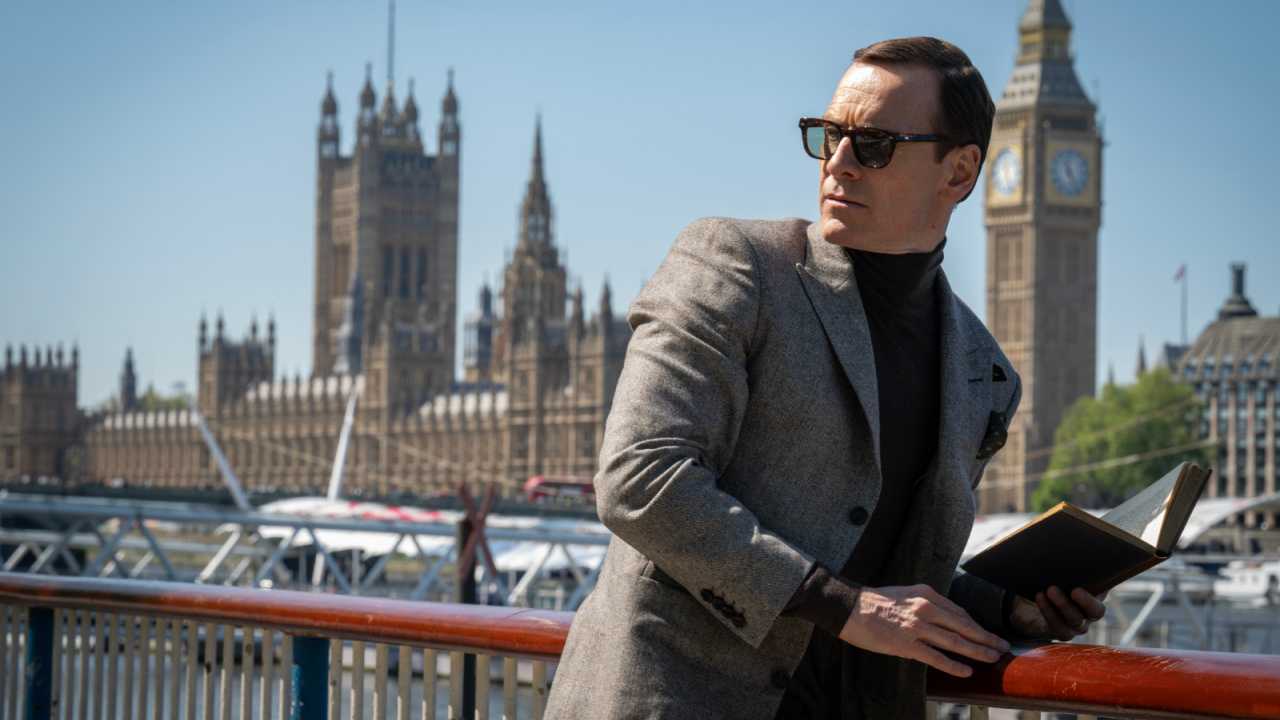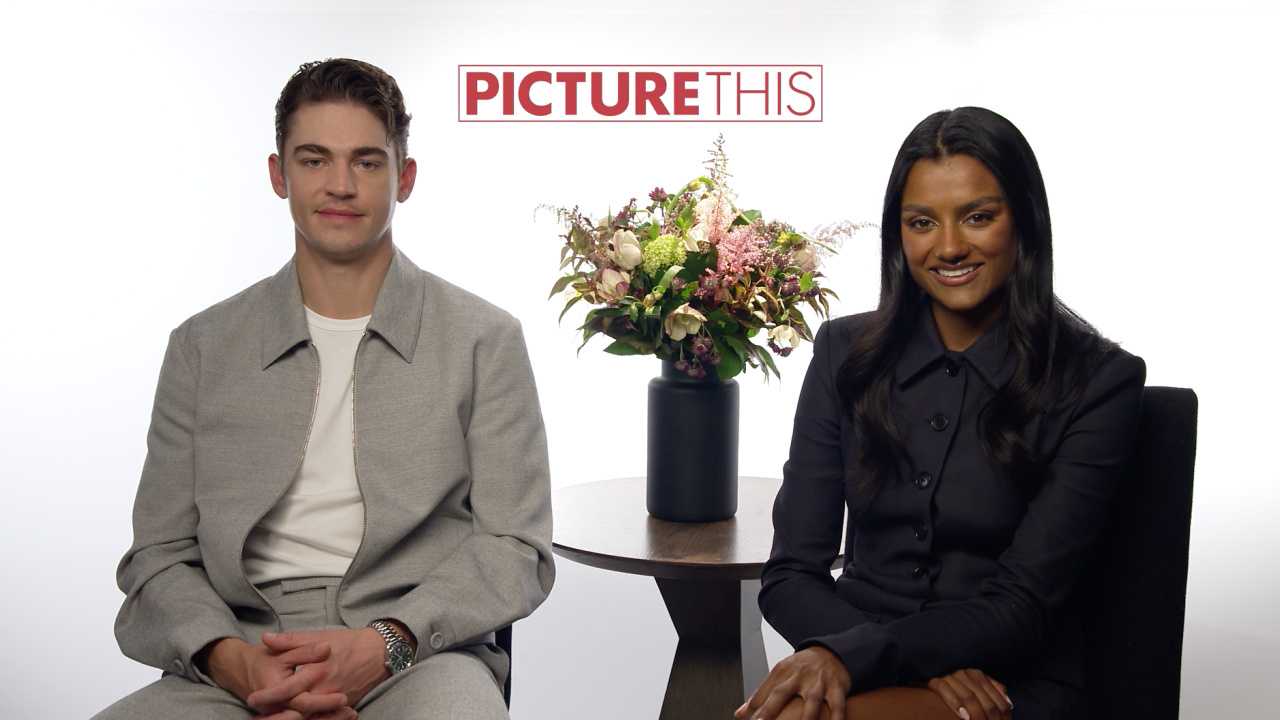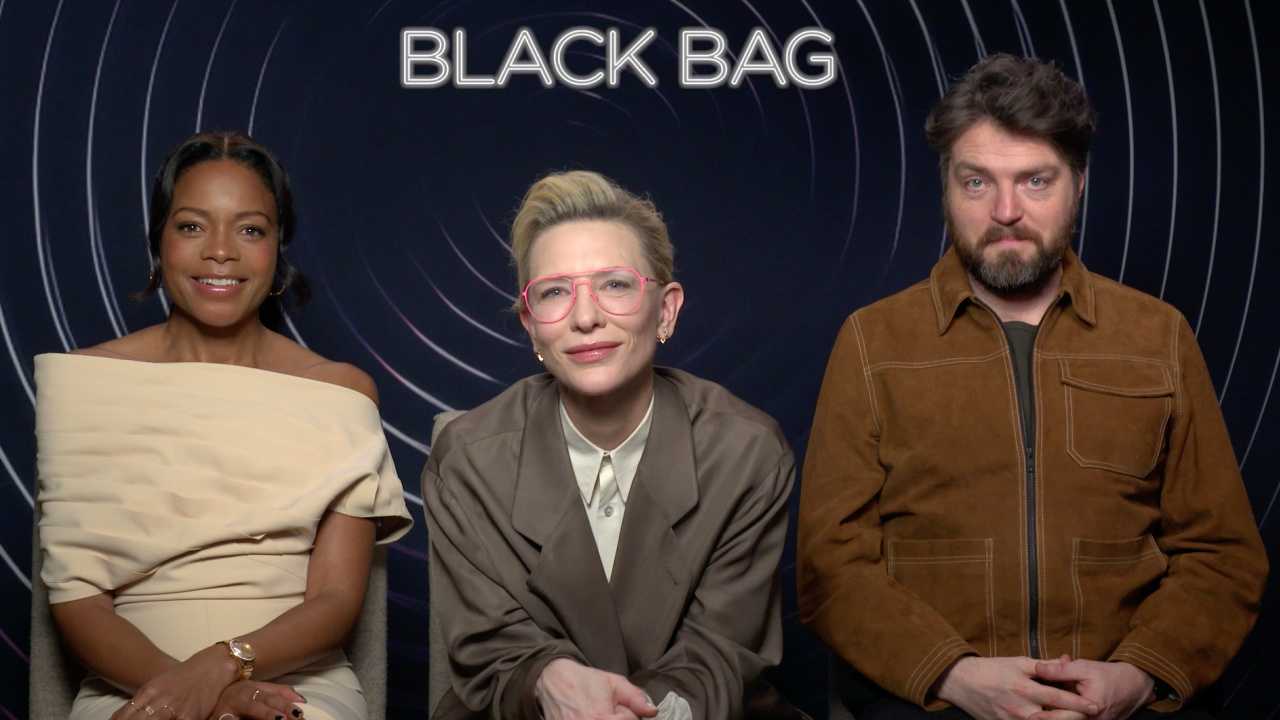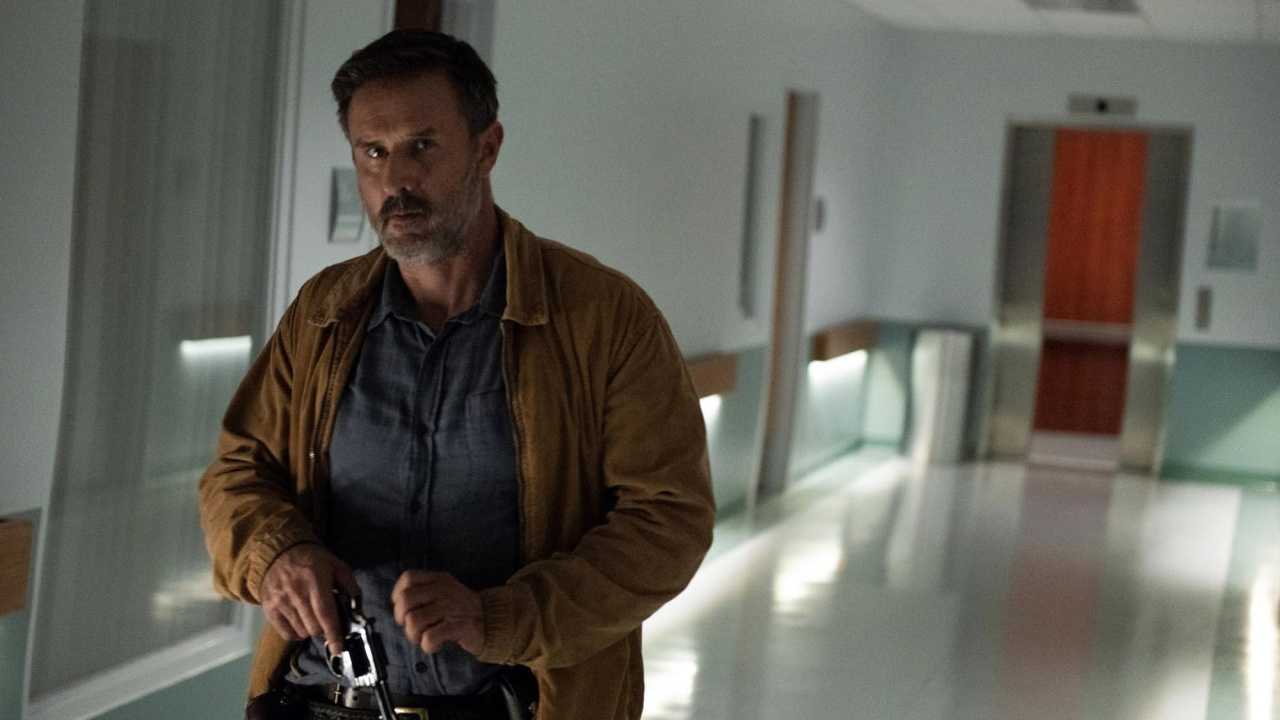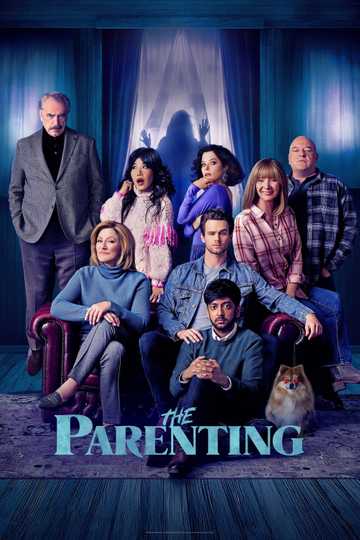Mary McCartney Talks Abbey Road Documentary 'If These Walls Could Sing'
Moviefone speaks with Mary McCartney about 'If These Walls Could Sing.' "I love Abbey Road and I've been going there since I was born," the filmmaker said.
Premiering on Disney+ beginning December 16th is the new documentary ‘If These Walls Could Sing,’ which chronicles Abbey Road Studio, the London recording studio made famous by The Beatles and many other musical artists.
Directed by Mary McCartney, the film looks at the 90-year history of Abbey Road Studio including the recording of The Beatles albums, scoring ‘Star Wars,’ and the 90’s Britpop movement.
The documentary features interviews with Paul McCartney, Ringo Starr, Elton John, Jimmy Page, Roger Waters, David Gilmour, Noel Gallagher, Liam Gallagher, and John Williams.
In addition to being a documentary filmmaker, director Mary McCartney is also an accomplished photographer, and cooking show host with her Discover+/Food Network series, ‘Mary McCartney Serves It Up.’ She is also the daughter of Paul McCartney and Linda McCartney, who in addition to being a musician was also an accomplished photographer and cookbook author herself.
Moviefone recently had the pleasure of speaking with director Mary McCartney in an extended interview about her work on ‘If These Walls Could Sing,’ the history of Abbey Road, interviewing her father, Elton John’s love for her dad, Jimmy Page’s contribution to ‘Goldfinger,’ how Indiana Jones saved the recording studio, and having to record the Gallagher Brothers from Oasis separately.
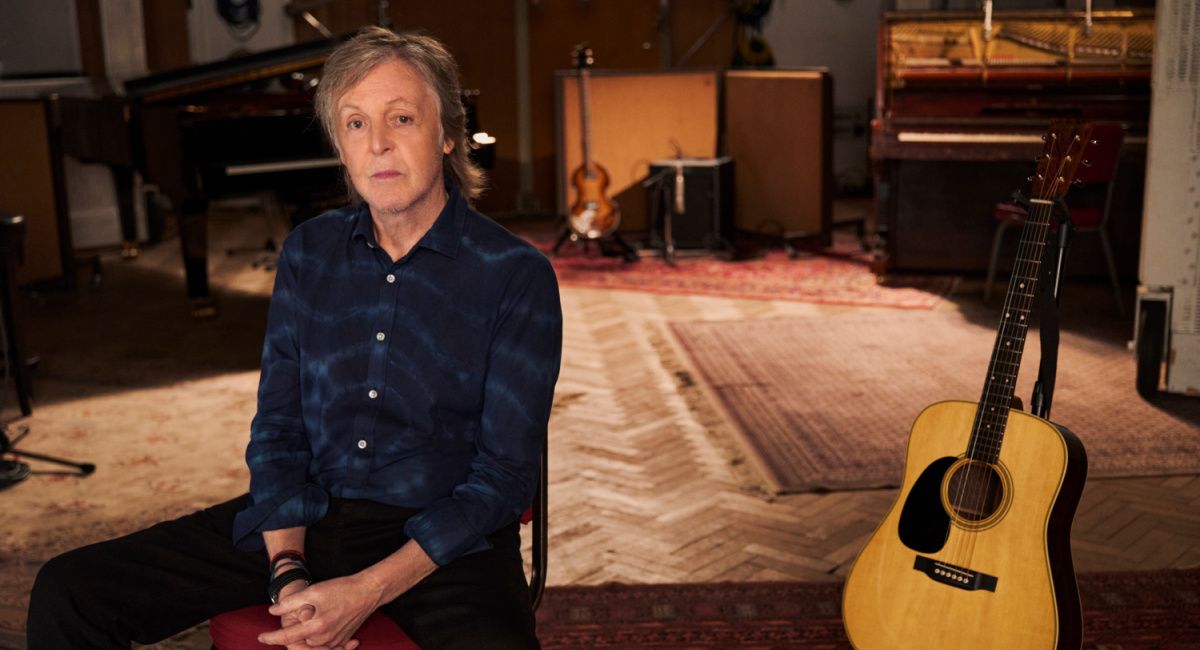
Sir Paul McCartney, in Studio 2 Abbey Road in 'If These Walls Could Sing.' Credit: Mary McCartney.
You can read the full interview below or click on the video player above to watch our interview with Mary McCartney about ‘If These Walls Could Sing.’
Moviefone: To begin with, obviously you and your family have a long history with Abbey Road Studios, but how did this documentary come together and as a filmmaker why did you want to tell this story?
Mary McCartney: Well, up until doing this documentary, I was a portrait photographer and a photographer doing exhibitions and books. So, I was approached. A natural progression from photography is to move into directing and I've been directing more short pieces. Then I was invited by John Battsek from Ventureland, who is an Oscar nominated documentary director, he messaged me one day and said, “Have you thought of directing documentaries?” I was like, yes, I have. Then he said, would you please direct the documentary of the 90-year history of Abbey Road?
If I'm honest, if you can believe it, my first reaction was to say no, because I thought it's a bit too close to home. Then I had a little word with myself and I thought, yes, I will do this. It's an amazing opportunity. I love Abbey Road and I've been going there since I was born. Even before I was born, probably in my mother's tummy. There was so much I did not know about the studio, and I didn't even know that it had a 90-year history. So, it has been a complete adventure and a pleasure to do this.
MF: In addition to the amazing interviews you conducted for the movie, you also include a lot of archive footage. Can you talk about the challenges of finding all the material you needed for the documentary?
MM: So, originally it was like, “Will you direct the documentary about the history of Abbey Road?” I was like, okay, yes. Then they were like, “We'll make the archive completely available to you.” So, I thought I was going to go into this Aladdin's cave of pictures and footage. Then I soon realized, which I should have known, is there isn't very much footage because one of the golden rules is when you're recording musicians and artists, producers and engineers, they're locked in the space and it's creative. You don't want people filming you and distracting you.
I soon realized that any archive footage we had, we'd have to make work. I think we worked really hard to make it look like there was a lot of footage, but actually it was scarce and we built it up through, as you say, audio interviews, photographs, and what film we could find.
So, then going onto the interviews, the interviews had a lot of importance placed on them because I really needed to capture the essence and emotion of the studio through those interviews. That's where my kind of career as a photographer came in because I have this bag of tricks. It created a nice environment for the person we're interviewing. A lot of them, the majority of them, we were actually able to film at the studio, in Studio One, Studio Two or Studio Three.
I think that really helped with the feel of it. Also, I just really tried to make it very relaxed and casual. I think that's one thing that I'm really happy with in the documentary is that it is very conversational. They're relaxed and I think it really allows the viewer to connect. I want to draw the viewer in and make them feel that by the end of watching it, that they've been in Abbey Road, that they feel that the essence of Abbey Road in their hearts.
MF: Seeing how you are Paul McCartney’s daughter, and all the musicians you interviewed love and respect your dad, do you think that helped with conducting the interviews?
MM: I think it did. I was slightly nervous because I haven't interviewed people before and one of my habits is interrupting people. I get overexcited in conversation. I butt in and I kind of talk over people, so I really had to rein myself in. But you are right. I hadn't really met Jimmy Page before. I know Elton John, but not that well. But then they'd end up saying, “Oh your dad.” My voice wasn’t going to be in it. So, it was funny in the end I gave into it and it became part of the feel of ‘If These Walls Could Sing.’
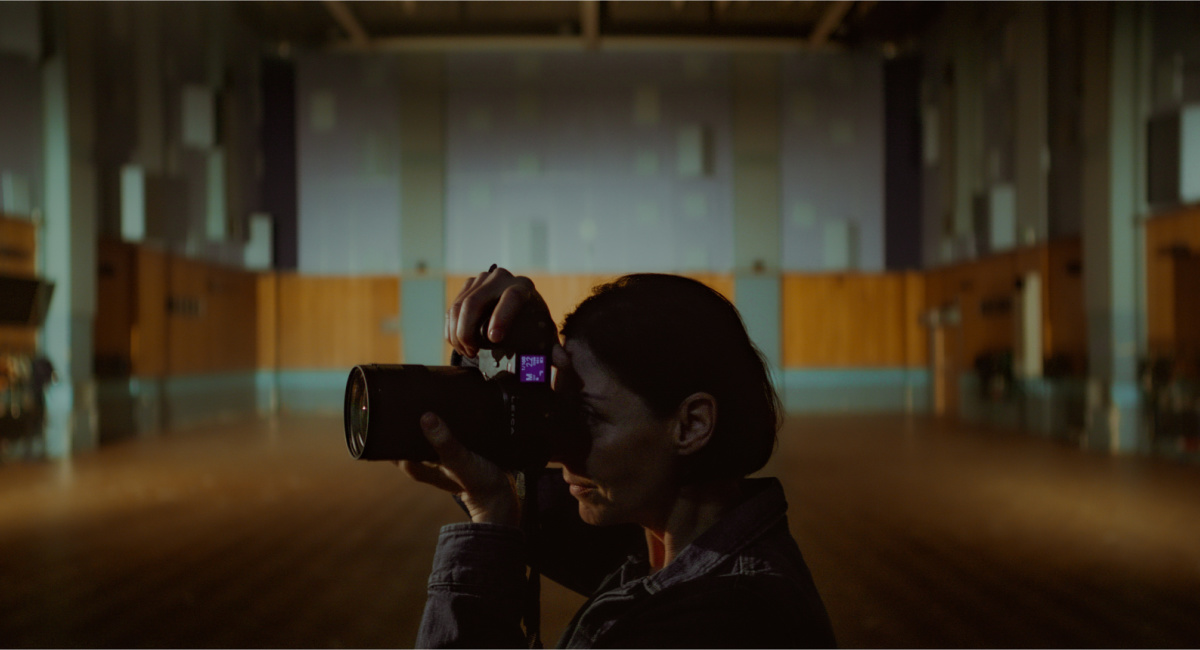
'If These Walls Could Sing' director Mary McCartney taking photos at Abbey Road. Photo: Mary McCartney/Tim Cragg.
MF: The documentary starts with your narration and home photos of you and your family at Abby Road with your pony Jet, who the Wings song was written about. Can you talk about the choice as a filmmaker to really personalize the movie?
MM: Once you've got a project like this, you're really making it for the viewer. I've grown up in London so I go past that crossing on a regular basis and it's always got people taking photographs on it, but it has more than this feeling of, tourists have come here to take their pictures. It's more like when I look at some of those people, it feels like a family pilgrimage. It feels like a really heartfelt reason and it feels quite emotional. They're there by the wall and at the crossing but they can't go into the studio.
So, I actually did think this was a real opportunity to bring this into people's homes. I still get that feeling when I walk through the doors at Abbey Road. I did all the beauty shots there and I still walk in and it's like you get this feeling of “There's something special here.” It makes you feel good. It makes you want to up your game.
MF: One of the many things I love about your dad is how unassuming he is. In the movie, he picks up a guitar and starts playing ‘Blackbird,’ and acts like it is no big deal. What was it like for you to interview your own father?
MM: It's a little nerve-wracking because interviewing anybody or photographing anybody, it's like what mood are they going to be in? How are they going to be feeling on that day? So, I create the space that when they walk in, it's going to feel good, but I can't say what's happened to them or if somebody annoyed them over breakfast. So, you want someone to arrive in a good mood because otherwise it's difficult to be interviewed if you're not feeling it.
So, I set the studio, I had his Hofner bass, and I had a piano. When he walked in it had this feeling for him to be like, “I'm in Abbey Road.” It ignited some memories for him. The funny thing is, I had the acoustic guitar next to him and I was like, “Look, I really want to include 'Blackbird,' so if you feel like you could pick it up and just play some of it, but no pressure.”
So he does, but my sound recordist had put a little square of carpet under his foot because when you're interviewing you don't want to hear people tapping their feet on the wooden floor in the studio. So, my dad is also a bit of a rebel and if you tell him he can't do something... so he was like, “Why have you got this under my feet?” Then he was really happy. He was like, “Oh, and it's in the documentary.” It's like, “Oh, I'm just going to have to move this so you can hear my foot tap.” So, it was sort of quite sweet.
He was in a really good mood and he loves Abbey Road. I think it's one of the most relaxed interviews I've ever seen him do because he was really happy to talk about it. The people that he's worked with there over the years, he loves and he really admires the technical brilliance of the space. I feel like that really comes across. He wanted to tell the world his feelings about Abbey Road. He was happy to reminisce.

(L to R) Ringo Starr, Paul McCartney, John Lennon, and George Harrison in Disney+'s 'The Beatles: Get Back'
MF: I get goosebumps every time Paul mentions The Beatles. Do you have that same reaction or are you somewhat desensitized to the whole Beatles-thing?
MM: I knew partly any of the stories that I've put into the documentary. I think a lot of kids, like my kids don't pay attention to what I do. I've taken pictures of the Queen, but they don't go, “Mom tell us about when you went to the palace.” For some reason you just don't until you become an adult and you leave home, I think then I'd question Dad more about his life and career. But I learned a lot through making this documentary, which is why I'm really happy that I did it.
I didn't realize that they had done all of their albums except one at Abbey Road. I didn't realize that they had used all the different spaces. One of the interesting things about Abbey Road was that they had done comedy recordings there in the early sixties. They had a whole sort of special effects area for radio shows. So, those worked their way in on ‘Yellow Submarine.’ It just pieced together a whole area that I didn't know about.
MF: Can you talk about filming George Martin’s son, Giles Martin and having him play the original studio tracks for ‘A Day in the Life?’
MM: Well, Giles Martin was a dream to interview because he worked so closely with his father and he's been remastering a lot of The Beatles albums. He did the ‘Love’ album as well with his dad. So, he's the total expert, but also he's very eloquent. He was really able to explain a lot of the story about Brian Epstein, the manager, bringing in all of those kind of bands and singers then.
He was a real dream to interview. He's also a producer, so I was like, do you think we can get hold of the original Beatles master tapes? So, we filmed him and it's great just to be able to see and hold those tapes with the original handwriting on them. It was really magical.
Then, he's pulling up the orchestral pieces, or the vocals, or the drums, and he knows it so well. He can just tell you the stories behind it. Again, it just really brings it alive and helps shows the recording process. So, within this, it is very important to show the recording process. It's a recording studio and that's a moment where the viewer can really see the mixing levels and feel how it comes together to be the finished piece.
MF: The documentary also chronicles how the film industry, and especially Lucasfilm helped save Abbey Road after The Beatles stopped making records. Can you talk about that?
MM: The really interesting thing I hadn't realized is at a dramatic point in the documentary when they came across hard times, when all of the classical recordings had dried up, and it was like, “What are we going to do with this huge space of Studio One and do we have to make it into a car park or close it down altogether?” Then Ken Townsend, the manager, found out that a movie stage was closing down outside of London and quickly got a movie screen projector and he got the contract to do ‘Star Wars,’ and ‘The Lord of the Rings.’ Even to this day, all the ‘Harry Potter’ films were done there. So, dramatic moments like that, I knew nothing about those things.
A load of major films are done there. One of the highlights for me in this process was interviewing John Williams. He’s an absolutely incredible and awe-inspiringly talented. There's a really funny coincidence moment because I was interviewing him at a studio in Los Angeles and then completely coincidentally, and it shows at the end credits, Ringo Starr came in the back of my interview at the end and walked into the interview. So, that was quite a funny moment, which I put on the title credits. Ringo’s interview had been done months before in London, at Abbey Road. It was a complete coincidence he was there.
I really didn't know so many things, and through this process, I kind of became an expert, learning exactly what the history of Abbey Road and everyone that ever record there was. Then I thought, which stories do we pluck out? Because there's no way of putting everything in.
MF: The film reveals that Jimmy Page from Led Zeppelin was actually a session musician on Shirley Bassey’s recording of ‘Goldfinger’ for the James Bond movie of the same name. Can you talk about how you discovered that fun fact?
MM: It was one of my favorite moments. I think in dissecting the story, I wanted to put in stories of session musicians and what that meant because I didn't know that Elton John started his career as a session musician at Abbey Road playing piano on different people's tracks, which is in the documentary.
Then I found out Jimmy Page, who's a legend as well, had recorded with Shirley Bassey on ‘Goldfinger’ for the Bond movie. So, I interviewed him and then intercut it perfectly with Shirley Bassey's story. I think that's one of my favorite moments in documentary because it's so dramatic and fun. Because there's this famous story of how she had to hold that note for so long and then Jimmy Page was like, “She collapsed on the floor at the end.” So, to get him telling that story was incredible.
MF: You also were able to find footage of Shirley Bassey telling her side of the story. Was that hard to find?
MM: Yes, but I had to find that. I knew this folklore story that Shirley Bassey had held this note and collapsed, but we had no proof of it. We hadn't found that interview at this point. I was like, I really want to put this in the documentary, but how do we do that? Then, what we did have access to, which was incredible, is all the handwritten recording sessions, which were all sort of filed little bits of paper from Abbey Road. So, we could go to the ‘Goldfinger’ sessions and it had Jimmy Page down as one of the session musicians.
So, it was a very well researched documentary. I had a really good research team. I had a great editor and it's my first foray into directing and a feature length piece. The chemistry between the team was amazing. So, I've definitely got a bug to do more.
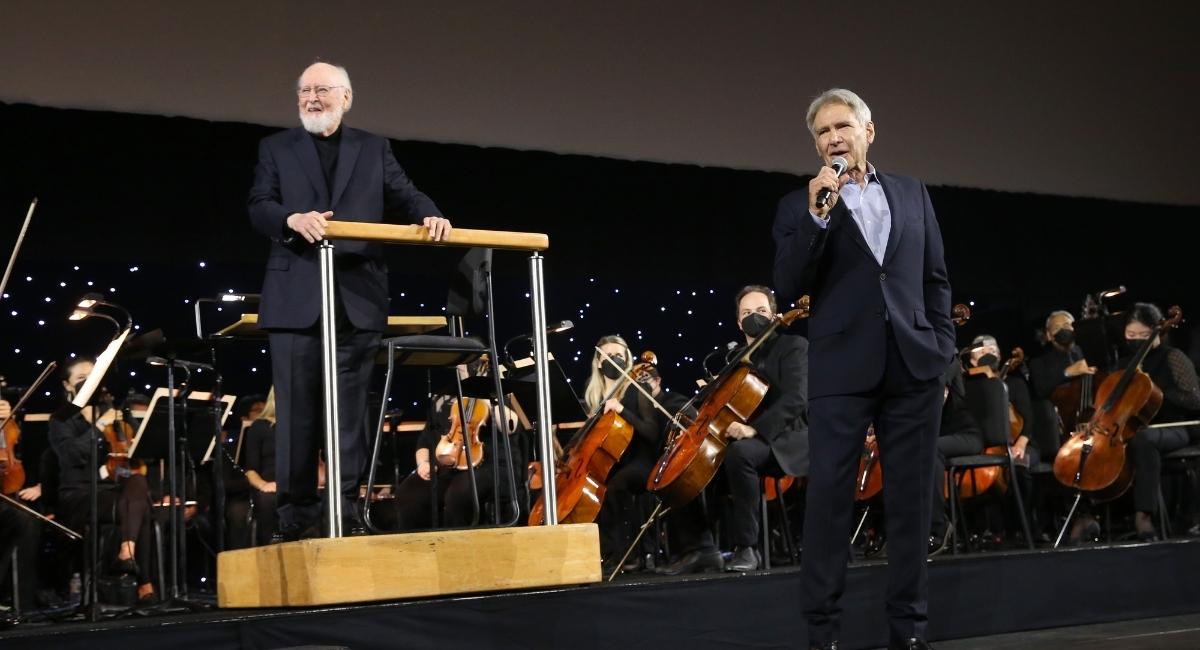
(L to R) Composer John Williams and Harrison Ford at Star Wars Celebration 2022.
MF: It’s well documented that brothers Noel and Liam Gallagher from Oasis no longer speak to each other, was it difficult scheduling their interviews at Abbey Road? You had to record them separately, correct?
MM: Yeah, they were recorded completely separately. My understanding is they do not speak to each other. They've parted ways but they still work together I think in a way. They've released documentaries. So, I felt it was important to have both of their voices and I was very happy that I had them both. I think even though they're not together in the documentary, the section about Oasis has a warmth and it's about the music and it's about the stories. So, there's a real warmth to it and they're brothers, I would love for them to make up.
But in the meantime, I think it really shows that Britpop moment. It shows how Abbey Road really facilitated the artists first and foremost. They brought in couches and things. They had a hangout chill area for when Liam Gallagher was waiting to sing. They have this canteen and bar at Abbey Road, so there's sort of really nice little area to hang around in. But I really wanted to get both of their voices. They're both very funny and they've got a good sense of humor. It really brings up that moment alive, and they are really influenced by The Beatles. So, again, it ties it all together.
MF: Finally, Elton John’s segment in the movie really feels like a love letter to your father. Can you talk interviewing him and what he told you about how your dad influenced and changed his life?
MM: I mean, Elton was really great on the day he arrived and he seemed really like he wanted to tell the story, and he wanted to do it because he tells an anecdote about when he was recording in Abbey Road Studio Three. It was quite funny because each person I would interview would be like, “We were recording and then your dad would come in and say hi.” He obviously was quite social, kind of nosing his way into different people's sessions.
But Elton said, “Your dad came in and was like, do you want to hear my new song?” And he just sat at the piano and played ‘Let It Be.’ Elton says in the documentary, it just really inspired him and it was just such a special moment that he's held and has been so meaningful to him to this day. So, I think in doing this interview, it was his opportunity to say that out loud and in a way, say it to the audience, but also say it to my dad.
He was like, “I want him to really know how much that meant to me and how much that really meant to me within my career, and how it sort of creatively inspired me.” It's quite heartfelt, isn't it? I couldn't have expected that before. I had no idea what mood he would be in or what he wanted to say.
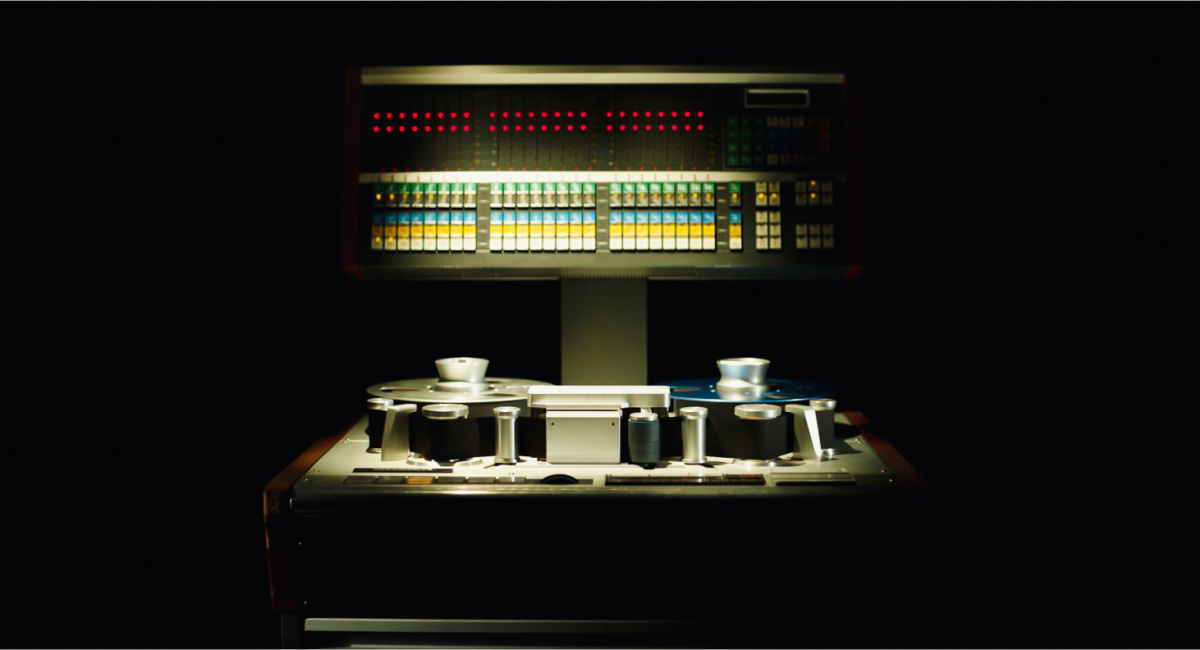
Abbey Road, a detail photo of a tape machine from 'If These Walls Could Sing.' Photo: Mercury Studios/Tim Cragg.
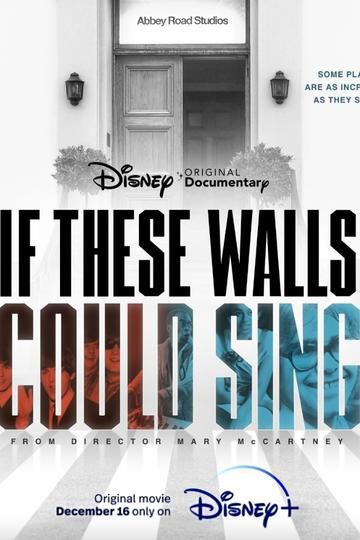
If These Walls Could Sing


